 To
Next Book
To
Next BookThis webpage discusses the contents of one of the six books that Dr. Seuss Enterprises withdrew from print on March 2, 2021. An overview discussion is here.

"If I Ran The Zoo" (1950) details the plans of Gerald McGrew for improving his local zoo. He finds the animals there to be nice but rather ordinary, so if he ran the zoo he would turn them all loose and replace them. He'd round up a collection of birds and beasts such as no one has ever seen, from exotic and whimsical places around the world where ordinary animal collectors would never venture, with natives who are portrayed as equally exotic and whimsical.

Of the six books that Dr. Seuss Enterprises took out of print, this one has the most overt racial and ethnic caricatures. Gerald McGrew hasn't collected half a dozen beasts before he ventures to a land where he hires "helpers who all wear their eyes at a slant," and the Great White Hunter pose he's striking as he and his quarry are carried on the shoulders, er, heads of his bearers probably didn't make the publishers' decision any more difficult.
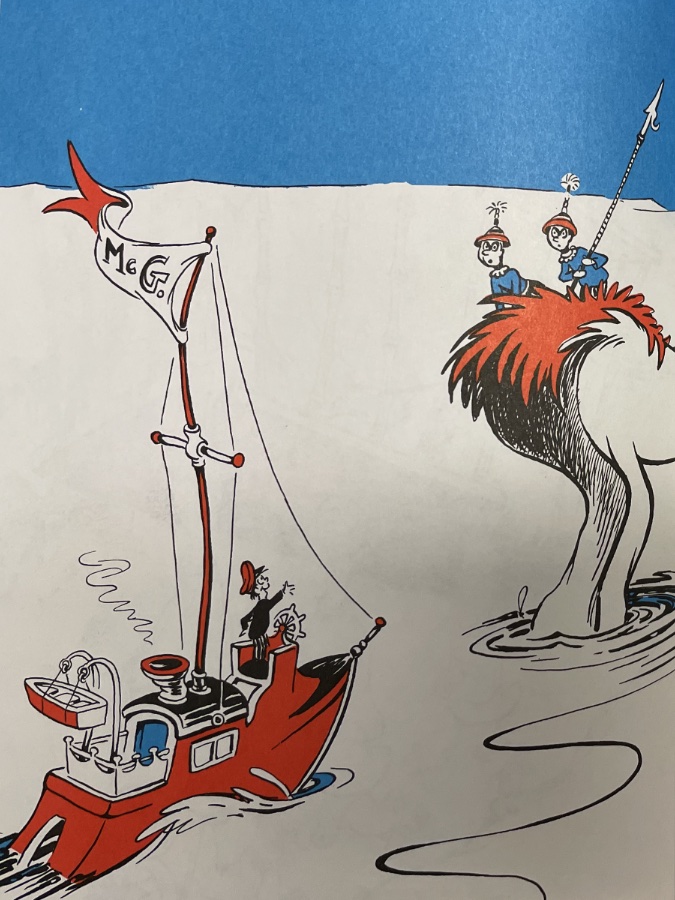
Some of the places he goes are "nooks that you don't read about in geography books," or "countries that no one can spell." These guys, from one of the latter, aren't particularly stereotyped or caricatured, but the publishers probably figured that, as a general rule, "nobody can spell that" or "nobody has heard of that" implicitly means "nobody who matters." This could also apply to, say, a kid with a non-Anglo name who can say or spell it just fine; if classmates (or worse, adults) comment about the name being difficult, or substitute a nickname ("we'll just call you Tom"), he or she is definitely going to get the message that "you aren't someone who matters."

Here is the exotic "scraggle-foot Mulligatawny," bearing a chieftain across the Desert of Zind. Gerald McGrew finds the natives here to be exotic enough themselves that "a Mulligatawny is fine for my zoo, and so is a chieftain. I'll bring one back too."
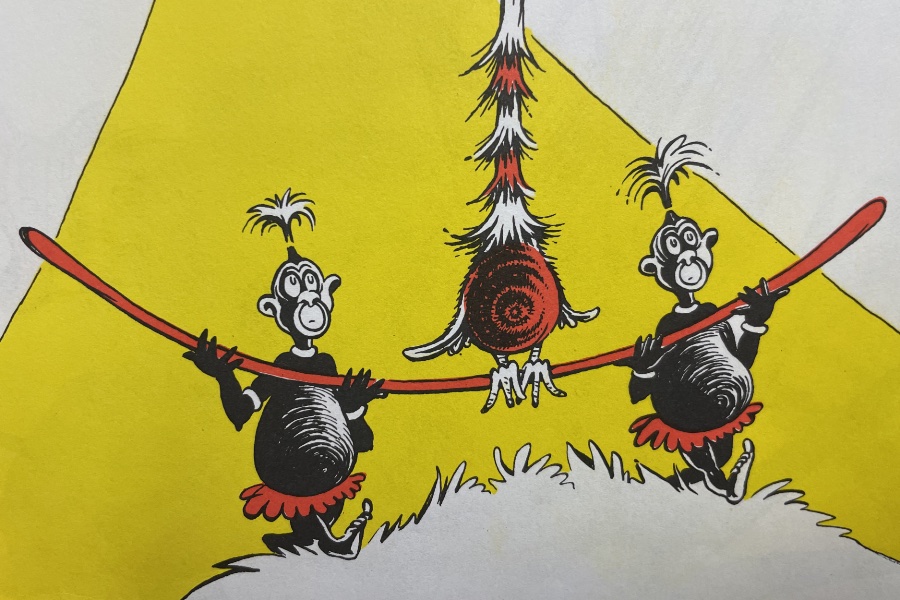
And on "the African island of Yerka" these guys help him catch a very long-necked bird. Not much to add here.
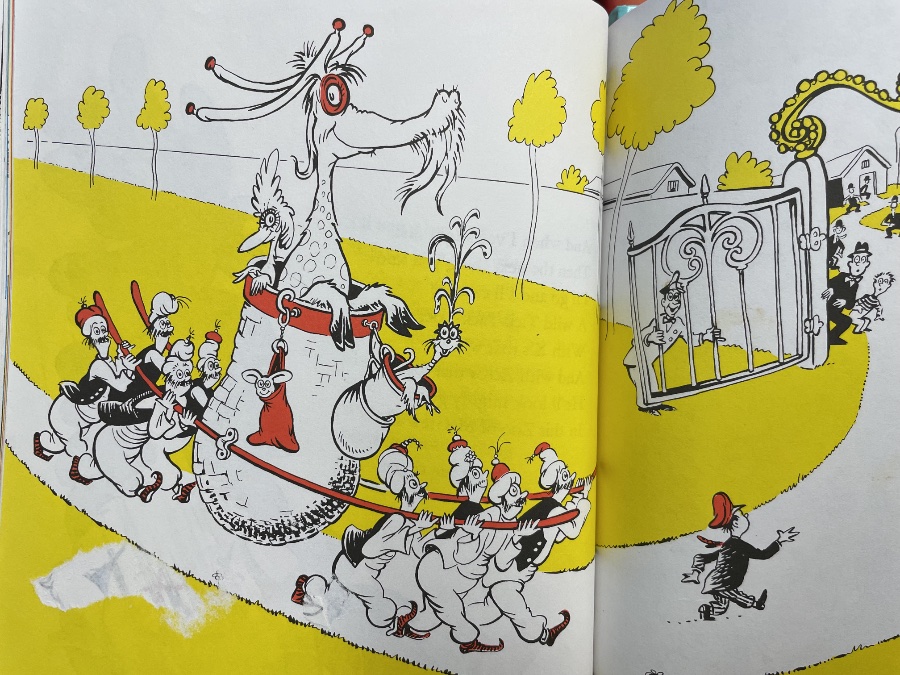
Here he names some more of his catches, and says that to bring them home "eight Persian Princes will carry the basket. But what their names are, I don't know. So don't ask it." They don't matter.
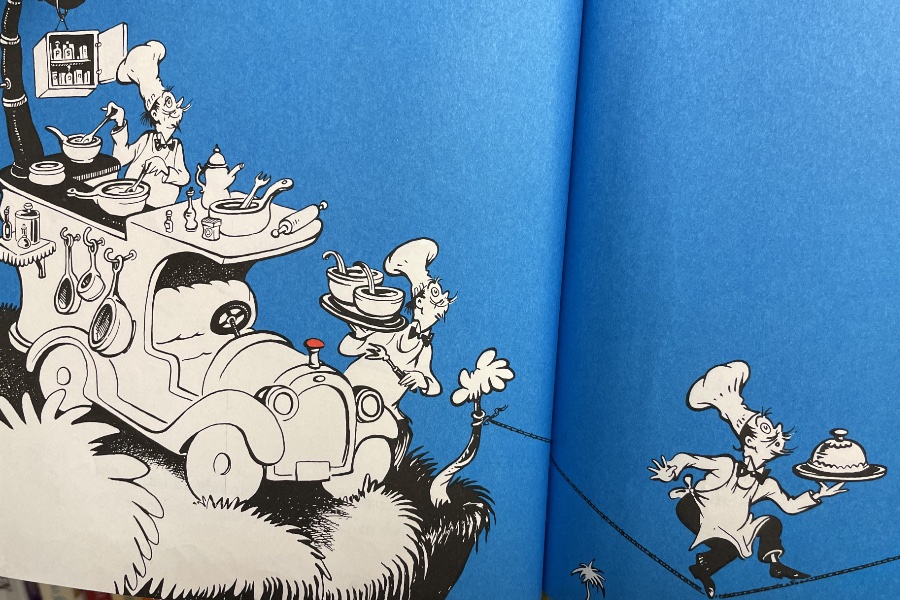
I don't think that Dr. Seuss Enterprises of 2021 objected to every ethnic caricature drawn by Dr. Seuss of 1950. These French chefs are not shown as ornaments to some weird French bird, but rather are simply the best cooks Gerald McGrew could find to man his "Cooker-mobile" and make a meal that would lure out one creature that's a very finicky eater.
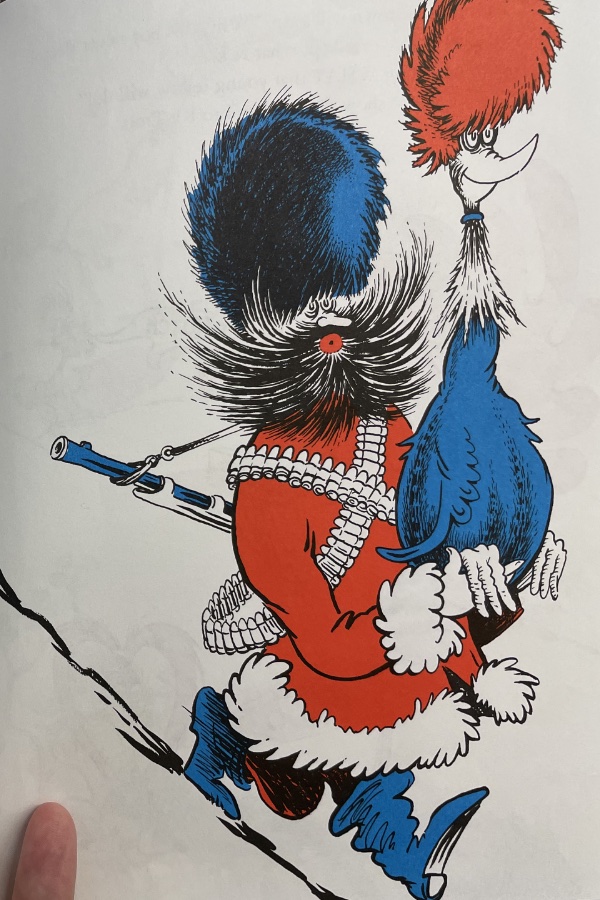
However, after showing a bird called the Obsk, from the "Mountains of Tobsk near the River of Nobsk," who will draw zoo visitors "in a mobsk," he presents this "Russian Palooski, whose headski is redski and belly is blueski" and who will fit right in at his "Zooski McGrewski." Looking at the other five books that were taken out of print, it seems that the publishers' main motivation was to remove instances where people who are different from the narrator are shown as bizarre or even merely exotic (even if they might have seemed so to Dr. Seuss in 1950, or to me as a white Midwestern kid in the 1970s!), even without overt racial stereotyping as of Asians or Africans above.
 To
Next Book
To
Next Book To
Main Page
To
Main PageOriginal material here is copyright 2022 by Mark Looper, but obviously I claim no ownership of the images or text that I reproduce here from the works of Dr. Seuss, which are copyright by Dr. Seuss Enterprises. I reproduce them here under terms of scholarly and journalistic fair use. Reuse of my copyrighted material is authorized under Creative Commons Attribution 4.0 International license (CC BY 4.0).
new 1 March 2022